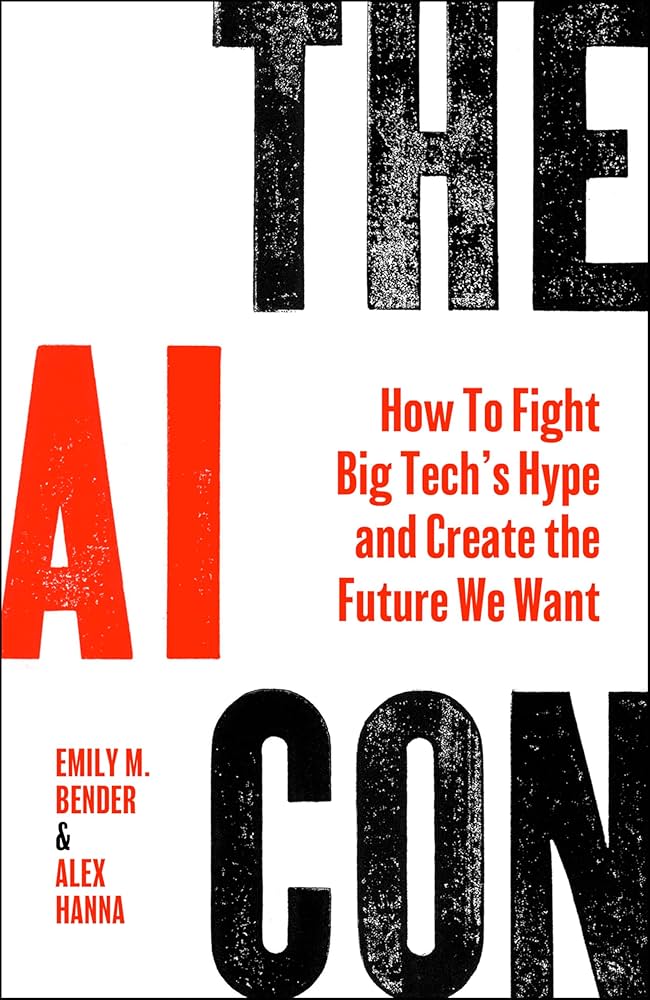In the past week or so, there have been a couple of AI-related stories that got a lot of uncritical press: OpenAI buying Jony Ive’s company, and the AI that ‘tried to blackmail’ users when they suggested they would deactivate it. Neither of these stories interested me much: the first led to a bunch of guessing about what those guys could be doing, and the second anthropomorphised AI to act like Hal in 2001 — even though it was likely trained on millions of books where characters do in a tight spot act the same way.
What was missing from these stories is what was interesting. Neither had any news of new AI development. Reading between the lines of most big news about AI recently, it seems to be that major progress in LLMs is ebbing, and the firms developing the technology are pushing stories to keep the funding going without any real advancement. It’s quite likely we’ve hit the top of the S-curve of the technology, where massive investments result in marginal improvement. Perhaps we’re about to enter another AI winter. Perhaps the hype around these non-news stories is simply meant to keep the money flowing. Enter The AI Con.
Emily M. Bender and Alex Hanna’s new book is an entertaining and accessible look at the real and imagined capabilities of so-called “artificial intelligence.” At just 200 pages, it’s a brisk read, offering an entry-level critique of the hype that’s built up around LLMs, chatbots, and other tools that masquerade as intelligence.
Both authors are credentialed critics: Bender is the computational linguistics heavyweight whose “stochastic parrot” paper made headlines when it was published in 2021, while Hanna runs research at the Distributed AI Research Institute. They host Mystery AI Hype Theater 3000, a podcast about the same material in this book.
The authors bring a lot of character to The AI Con – the writing is sarcastic and snarky. This tone works well at first, but over the length of the book it becomes somewhat discrediting. It’s clear that the authors are writing for fellow skeptics, but I can imagine the tone being alienating to readers who aren’t already on the same team.
There are excellent ideas and eye-opening passages in this book. The authors discuss how LLMs deployed in legal, healthcare and other critical applications are completely unreliable, and effectively skewer the governments and business leaders for adopting the technology without understanding it, referencing Brian Merchant’s essential Blood in the Machine. They go deep into how biases in the training material cause the output of the LLMs to be prejudiced, as illustrated in books like Race After Technology.
Even the concept of “intelligence” is hazy and malleable, and Bender and Hanna show how the definition these tech leaders use has roots in eugenics and bigotry, which generates outcomes with the same biases.
Where The AI Con works best is in the familiar, dystopian, sometimes grimly funny, examples of corporate AI misuse: healthcare schemes that promise “accessible care for all” while gutting services for the most vulnerable; social service agencies deploying LLMs to do work that requires real empathy. The authors’ deep skepticism is well-founded.
Frustratingly, The AI Con feels incomplete. The authors mention promising, narrow use-cases for AI—fields where these tools might have real utility—but don’t spend much time with them. Their discussion of how AI is powered by workers in the “Majority World” (or non-Western countries) gestures at a serious point, but never fully lands it. There’s no real engagement with areas where AI has genuine potential, or where it’s doing work that wouldn’t otherwise get done.
There’s still a lot to like here: good questions about AI adoption, why governments and big corporations seem so eager to embrace tools they barely understand, and the very real risk of bias baked into the data science that underpins these systems. But ultimately, The AI Con reads like a book that’s not really interested in persuasion. It ends on a note of weary caution—reminding readers that critical thinking is more essential than ever, even as the journalists and regulators charged with that work seem less equipped to do it.
If you’re already convinced, The AI Con will be a satisfying read. But if you’re looking for a more thorough, less snarky exploration of the same terrain and a lot more check out, Adam Becker’s More Everything Forever.









